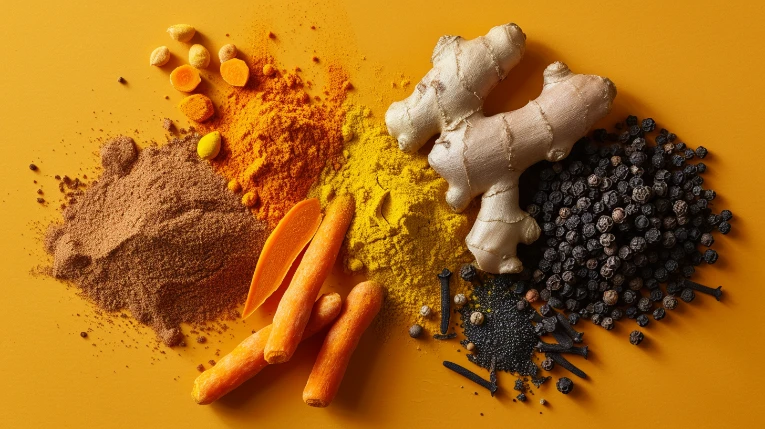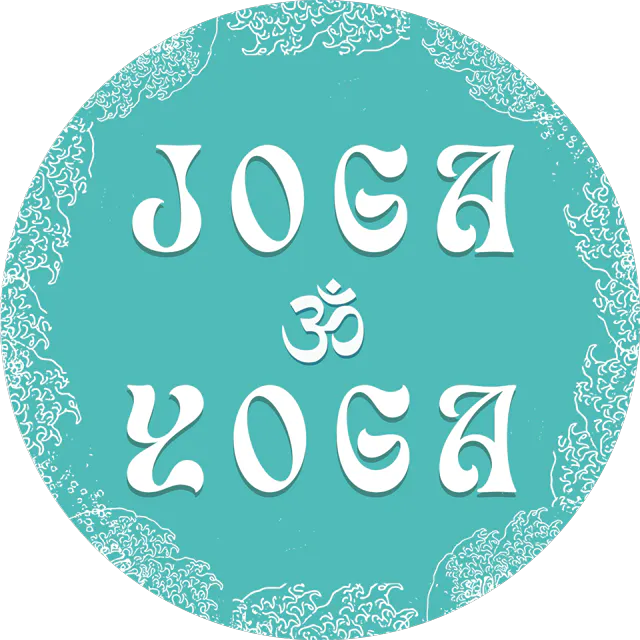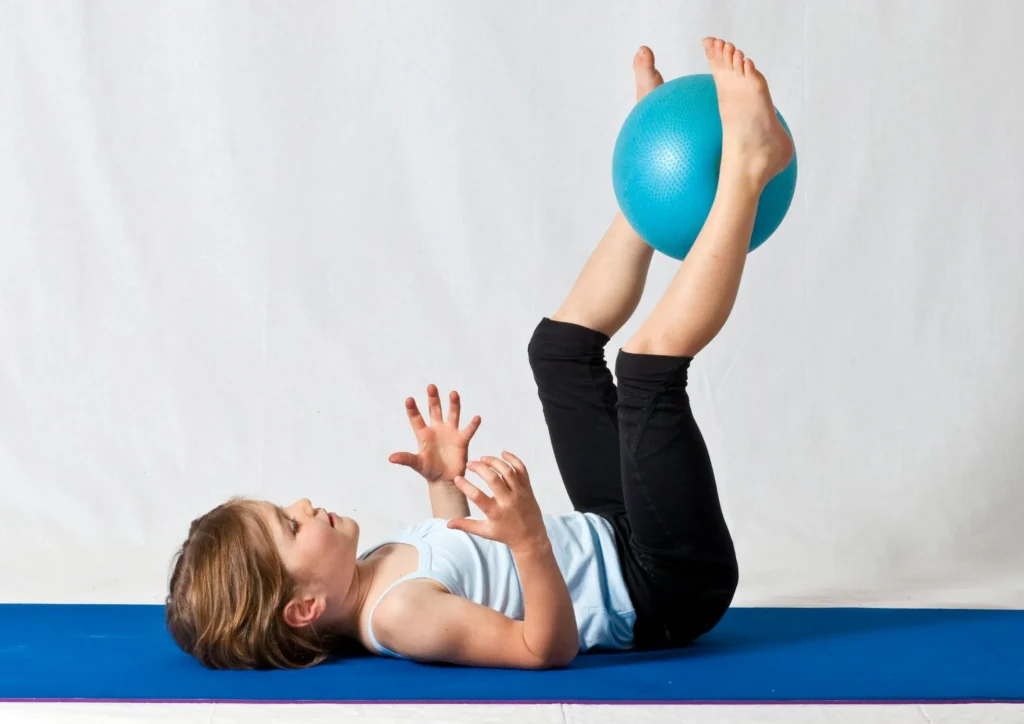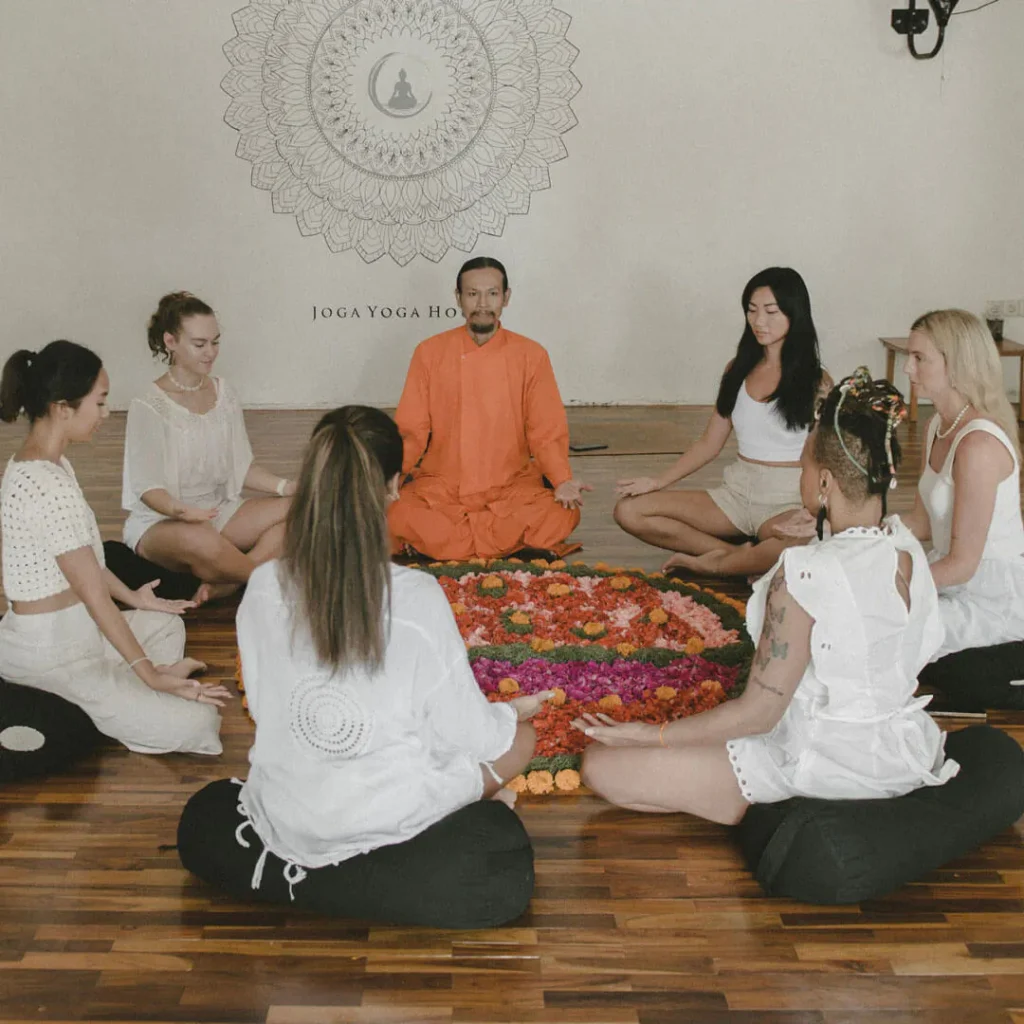An Introduction to Ayurveda
Ayurveda, an ancient health system originating in India over 5,000 years ago, focuses on holistic wellness. This traditional practice integrates mind, body, and spirit for overall health. Recognized as one of the oldest medical systems, Ayurveda emphasizes balance and prevention through diet, lifestyle, and natural therapies. Its roots in ancient health systems make it a cornerstone of holistic wellness.
Importance in Modern Wellness Practices
In modern wellness practices, Ayurveda’s significance lies in its comprehensive approach to health. By balancing physical, mental, and emotional aspects, it remains relevant in today’s integrative medicine. Modern Ayurveda practices offer solutions for stress, chronic diseases, and lifestyle-related issues, making it a vital part of contemporary health regimes.
Overview of How Ayurveda Integrates with Yoga, Astrology, Diet, and More
Ayurveda seamlessly integrates with Yoga, Astrology, Diet, and Cleanses to promote a balanced life. Yoga complements Ayurvedic practices by enhancing the mind-body connection through postures and meditation. Astrology (Jyotish) guides personalized health recommendations based on planetary influences. An Ayurvedic diet balances the body’s energies (Doshas) through appropriate foods. Regular cleanses (like Panchakarma) help detoxify and rejuvenate the body. Together, these elements foster a holistic approach to health and wellness.
Ayurveda and Yoga
The Synergy of Ayurveda and Yoga
Ayurveda and Yoga share a deep historical relationship, both originating in ancient India. Rooted in holistic wellness, these practices aim to balance the mind, body, and spirit. Historically, they have been practiced together to enhance overall well-being, with Ayurveda providing the medicinal and dietary framework, and Yoga offering physical and spiritual practices.
How Yoga Complements Ayurvedic Practices
Yoga complements Ayurvedic practices by promoting mind-body balance through physical postures (asanas), breath control (pranayama), and meditation. These integrative practices enhance the effectiveness of Ayurvedic routines, aiding in the balance of Doshas (body energies). Regular Yoga practice helps maintain physical and mental health, aligning with Ayurveda’s preventive and healing approaches.
Benefits of Integrating Yoga into an Ayurvedic Lifestyle
Integrating Yoga into an Ayurvedic lifestyle offers numerous benefits for holistic health. It enhances physical and mental health by reducing stress, improving flexibility, and boosting immune function. Yoga postures and meditation support the body’s natural healing processes, making Ayurvedic treatments more effective. This wellness synergy promotes a balanced life, where physical activities and Ayurvedic principles work together to optimize health and well-being.
Ayurvedic Astrology
Basics of Ayurvedic Astrology (Jyotish)
Ayurvedic astrology, or Jyotish, is a traditional system that uses astrological charts to predict and enhance health. It involves the study of birth charts to understand an individual’s unique constitution and health tendencies. Jyotish provides insights into the balance of energies and potential health issues, allowing for personalized Ayurvedic treatments.
How Astrology Influences Ayurvedic Practices
Astrology significantly influences Ayurvedic practices by offering a personalized approach to health. Planetary alignments and movements are believed to affect physical and mental well-being. By analyzing these planetary influences, Ayurvedic practitioners can tailor remedies and lifestyle recommendations to suit individual needs, promoting optimal health.
Role of Planetary Influences on Health and Well-being
Planetary influences play a crucial role in Ayurvedic astrology. Each planet is associated with specific bodily functions and health aspects. For example, the moon influences emotions and fluids, while Mars affects energy and muscles. Understanding these influences helps make precise health predictions and create effective Ayurvedic remedies. This integration of astrology and Ayurveda supports a holistic approach to personal health and well-being.
Ayurvedic Body Types (Doshas)
Understanding Ayurveda Body Types
Ayurveda identifies three primary body types, or Doshas: Vata, Pitta, and Kapha. These Doshas represent different combinations of the five elements (air, space, fire, water, earth) and influence physical and mental characteristics:
- Vata: Associated with air and space, governing movement and creativity.
- Pitta: Combines fire and water, controlling metabolism and transformation.
- Kapha: Represents water and earth, providing structure and stability.
Characteristics and Health Tendencies of Each Dosha
Each Dosha has distinct characteristics and health tendencies:
- Vata:
- Energetic, creative, and quick-thinking.
- Common issues: anxiety, dryness, and digestive problems.
- Pitta:
- Determined, intelligent, and focused.
- Common issues: inflammation, anger, and digestive disorders.
- Kapha:
- Calm, steady, and nurturing.
- Common issues: weight gain, lethargy, and congestion.
Understanding these Dosha characteristics helps in identifying personal health tendencies and potential imbalances.
How to Balance Your Body Type with Ayurveda
Balancing your body type with Ayurveda involves adopting specific dietary, lifestyle, and therapeutic practices tailored to each Dosha:
- Vata: Maintain warmth and routine, consume grounding foods, and ensure regular hydration.
- Pitta: Enjoy cooling activities, eat cooling foods, and avoid excess heat and stress.
- Kapha: Focus on stimulation and movement, consume light, warm meals, and counteract heaviness.
By balancing Doshas, you can achieve optimal personal health and well-being, aligning with your Ayurvedic constitution.
Ayurvedic Diet

Crafting the Perfect Ayurvedic Diet
An Ayurvedic diet emphasizes balance and harmony with nature. It focuses on consuming Sattvic foods, which are pure, fresh, and nourishing. The diet is tailored to individual Doshas to promote optimal digestive health and overall well-being. Ayurvedic principles advocate for mindful eating, regular meal times, and a balanced intake of all six tastes: sweet, sour, salty, bitter, pungent, and astringent.
Foods That Balance Different Doshas
To balance the Doshas, the Ayurvedic diet recommends specific foods for each body type:
- Vata Diet: Warm, moist, and grounding foods such as cooked grains, root vegetables, and dairy. Avoid cold, dry, and raw foods.
- Pitta Diet: Cooling and hydrating foods like cucumbers, leafy greens, and melons. Avoid spicy, oily, and acidic foods.
- Kapha Diet: Light, warm, and stimulating foods like legumes, spices, and leafy greens. Avoid heavy, oily, and sweet foods.
These dietary recommendations help maintain dietary balance and prevent Dosha imbalances.
Importance of Seasonal and Individual Dietary Adjustments
Seasonal and individual dietary adjustments are crucial in an Ayurvedic diet. Eating seasonal foods ensures the diet is in harmony with nature’s cycles, supporting digestive health and overall well-being. Additionally, individual adjustments based on one’s unique constitution and current health status are essential. For example, during the hot season, Pitta types should increase cooling foods, while Vata types may need more warm, moist foods in the winter. These adjustments ensure a balanced Ayurvedic diet that adapts to changing needs and promotes long-term health.
Ayurvedic Recipes
Delicious and Nutritious Ayurvedic Recipes
Creating Ayurvedic recipes tailored to each Dosha ensures that meals are both delicious and beneficial for your unique constitution. Here are some examples:
- Vata Recipes: Warm, grounding dishes like spiced lentil soup, cooked grains with ghee, and roasted root vegetables.
- Pitta Recipes: Cooling meals include cucumber and mint salad, coconut rice, and steamed greens with coriander.
- Kapha Recipes: Light and stimulating options like spicy chickpea curry, steamed vegetables with ginger, and baked apples with cinnamon.
These recipes incorporate Ayurvedic ingredients that help balance the Doshas and promote overall nutrition.
Seasonal Ayurvedic Recipes
Adapting seasonal recipes enhances their health benefits and aligns with Ayurvedic principles. Seasonal Ayurvedic cooking uses fresh, local ingredients that are in harmony with nature’s cycles:
- Spring: Light and detoxifying dishes like asparagus soup, leafy green salads, and herbal teas.
- Summer: Cooling and hydrating foods such as watermelon salad, coconut curry, and fresh fruit smoothies.
- Autumn: Nourishing and grounding meals like pumpkin stew, warm spiced apples, and root vegetable mash.
- Winter: Warming and hearty dishes like spiced lentil dal, baked sweet potatoes, and ginger tea.
These seasonal recipes support digestive health and adapt to the body’s changing needs throughout the year.
Benefits of Cooking with Ayurvedic Principles
Cooking with Ayurvedic principles offers numerous benefits, including improved digestion, enhanced energy levels, and better overall health. Ayurvedic cooking emphasizes using fresh, natural ingredients and mindful preparation methods. This approach not only makes meals more nutritious but also more satisfying. By incorporating spices and herbs that aid digestion, such as ginger, turmeric, and cumin, Ayurvedic recipes enhance the body’s ability to absorb nutrients and maintain balance. Embracing these principles in your daily cooking can lead to a healthier, more harmonious lifestyle.
Ayurvedic Cleanse
Detoxification Through Ayurvedic Cleanse
Panchakarma is a comprehensive Ayurvedic cleanse designed to detoxify and rejuvenate the body. It involves five main cleansing procedures: Vamana (emesis), Virechana (purgation), Basti (enema), Nasya (nasal administration), and Raktamokshana (bloodletting). These cleansing routines aim to eliminate toxins, balance the Doshas, and restore health and vitality.
Benefits of Regular Cleansing
Regular Ayurvedic detox practices offer numerous health benefits. They help purify body, improve digestion, boost immunity, and enhance mental clarity. By removing accumulated toxins, these cleanses promote overall health rejuvenation and prevent diseases. Regular cleansing can also increase energy levels, improve skin health, and support weight management.
Home Remedies for Ayurvedic Detox
For those unable to undergo Panchakarma, there are effective home detox remedies in Ayurveda. These simple practices support the body’s natural detoxification processes:
- Triphala: Taking Triphala powder with warm water at night helps cleanse the digestive system.
- Abhyanga: Self-massage with warm oil, followed by a warm bath, aids in detoxification and relaxation.
- Dietary Adjustments: Consuming warm, light foods like khichdi (a mixture of rice and lentils) and sipping hot water throughout the day supports digestion and detox.
- Herbal Teas: Drinking herbal teas made from ginger, turmeric, and fennel can promote cleansing and enhance digestion.
Incorporating these detox practices into your routine can provide significant health benefits and support long-term wellness.
Ayurvedic Experience
Embracing the Ayurvedic Experience
Personal stories and case studies highlight the transformative power of Ayurveda. Many individuals have experienced significant health improvements and lifestyle changes through their Ayurvedic journey. For example, adopting Ayurvedic practices has helped people manage chronic conditions, improve mental clarity, and achieve better overall wellness. These personal Ayurveda stories offer inspiration and insight into the practical benefits of this ancient health system.
How to Start an Ayurvedic Lifestyle
Starting an Ayurvedic lifestyle involves a few essential steps. Begin by understanding your Dosha (body type) and incorporating specific dietary and lifestyle recommendations to balance it. Gradually introduce Ayurvedic practices such as daily self-massage (Abhyanga), mindful eating, and regular Yoga and meditation. Consistency is key; small, sustained changes can lead to significant health transformations over time.
Key Benefits and Challenges of Adopting Ayurveda
Adopting Ayurveda offers numerous benefits, including improved digestion, enhanced energy levels, and a deeper sense of well-being. Embracing this holistic experience can lead to a health transformation by addressing the root causes of health issues rather than just symptoms. However, there can be challenges, such as the initial adjustment to new dietary habits and routines, and the need for patience as benefits may take time to manifest. Understanding these challenges in Ayurveda can help in better navigating the transition.
Conclusion
Integrating Ayurveda into Your Life
Integrating Ayurveda into your life involves understanding its principles and applying them to your daily routine. Key points include recognizing the importance of balance, identifying your Dosha, and adopting practices like a tailored diet, regular Yoga, and seasonal cleanses.
Encouragement to Explore Ayurveda Further
Exploring Ayurveda further can bring profound health benefits and a more balanced lifestyle. This ancient system offers a wealth of knowledge and practices that can be personalized to meet individual needs.
Tips for Starting Your Ayurvedic Journey
- Start Slowly: Introduce one or two Ayurvedic practices at a time.
- Be Consistent: Regularity in practices like diet, Yoga, and meditation is crucial.
- Seek Guidance: Consulting with an Ayurvedic practitioner can provide personalized advice and support.
- Stay Patient: Ayurvedic benefits can take time to manifest, so maintain patience and persistence.
By integrating these tips, you can begin your holistic health journey with Ayurveda, embracing lifestyle changes that support long-term wellness and balance.
FAQs on Integrating Ayurveda into Your Life
What is the origin of Ayurveda?
Ayurveda originates from India and is over 5,000 years old. It is one of the world’s oldest holistic healing systems, focusing on balancing the mind, body, and spirit through natural therapies, diet, and lifestyle practices.
How does Yoga complement Ayurvedic practices?
Yoga complements Ayurvedic practices by promoting mind-body balance through postures (asanas), breath control (pranayama), and meditation. Together, they enhance overall well-being by aligning physical activities with Ayurvedic principles.
What are the benefits of an Ayurvedic diet?
An Ayurvedic diet promotes digestive health, balances body energies (Doshas), and supports overall well-being. It emphasizes fresh, seasonal, and Sattvic foods, tailored to individual needs for optimal nutrition and health.
How can I start an Ayurvedic lifestyle?
To start an Ayurvedic lifestyle, identify your Dosha, adopt a diet suited to your body type, and integrate practices like Yoga, meditation, and seasonal cleanses. Begin slowly, be consistent, and seek guidance from an Ayurvedic practitioner.
What is Panchakarma and its benefits?
Panchakarma is an Ayurvedic detoxification method involving five cleansing procedures: emesis, purgation, enema, nasal administration, and bloodletting. It removes toxins, balances Doshas, and rejuvenates the body, promoting overall health and vitality.






